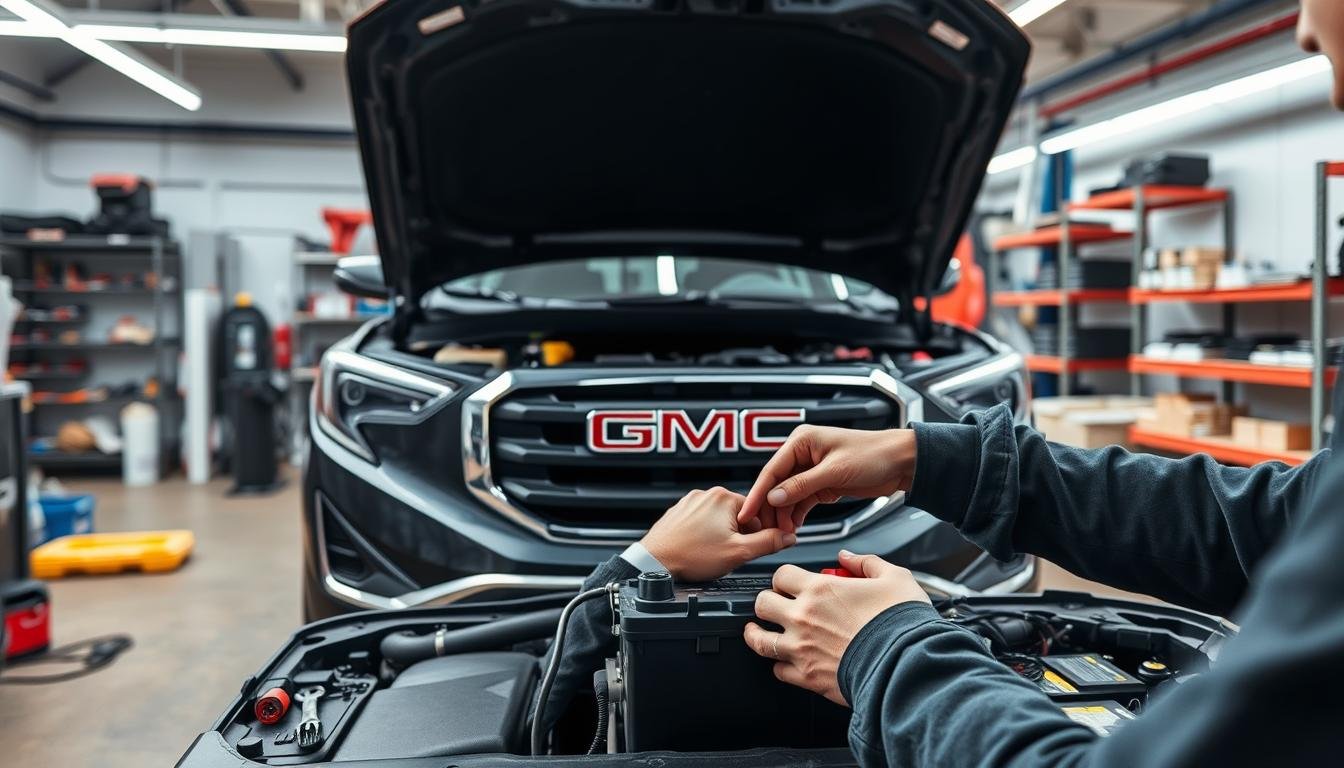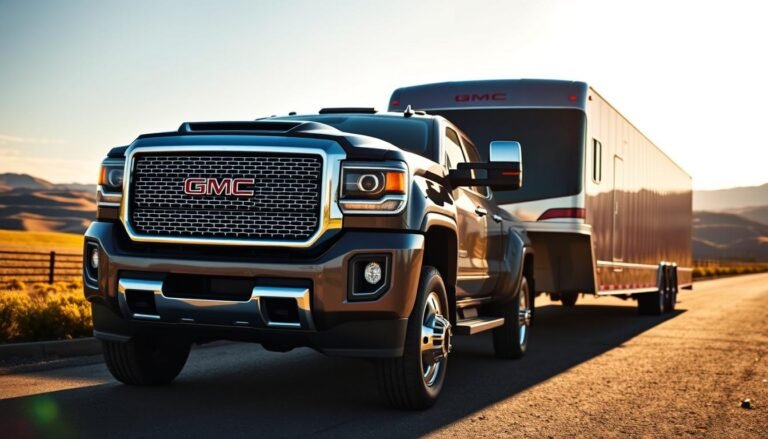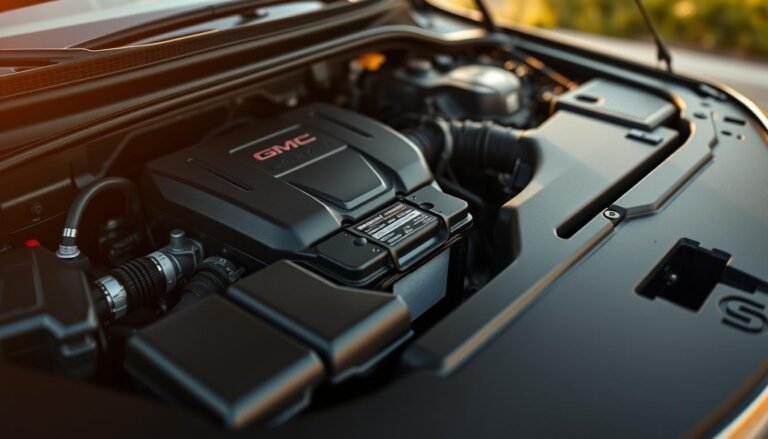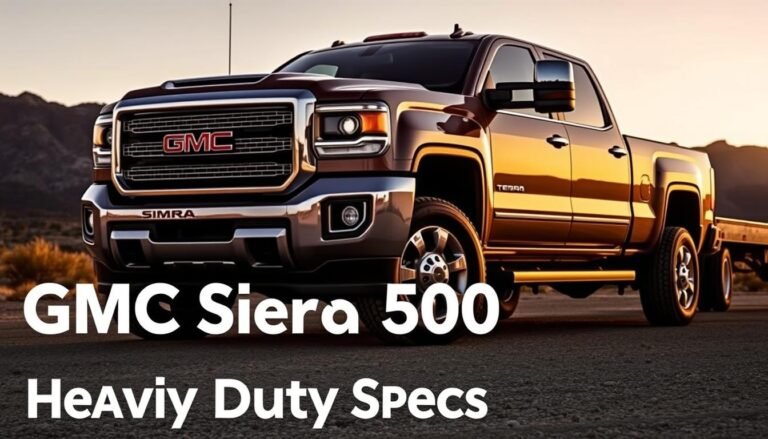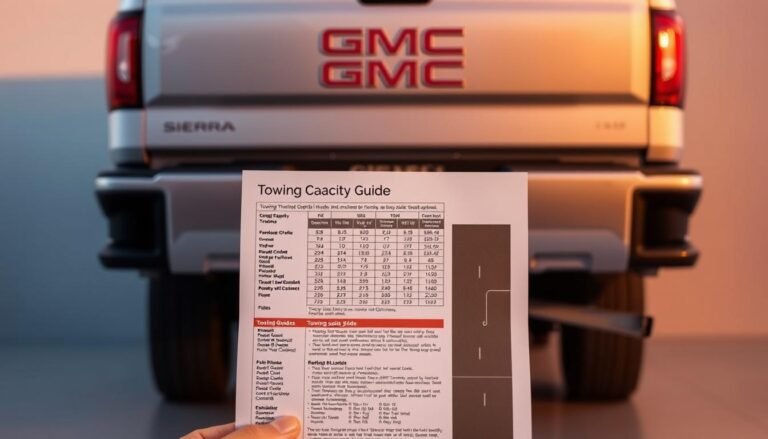GMC Terrain Battery Replacement Guide & Tips
Are you curious about replacing the battery in your GMC Terrain? Typically, a battery for this vehicle lasts 2 to 5 years. This is due to a natural process called sulfation.
Knowing how to care for your battery can boost your car’s performance and dependability. This guide shares key information on battery lifespan, how to replace it, and tips for care.
We will guide you through the battery replacement steps. This includes checking the battery’s condition, gathering needed tools, and safe installation tips.
We’ll cover the different types of batteries and how to choose the right one for your Terrain. This will help you feel confident when buying a new battery.
Plus, we’ll talk about the average cost of a new battery and what could change the price. Maintaining your battery is vital. Clean terminals and look out for wear signs to make your battery last longer.
If your engine starts slowly or your lights flicker, it’s time to check your battery. This guide will prepare you to face any battery problems with confidence.
What is GMC Terrain Battery Life?
The lifespan of a GMC Terrain battery usually falls between 3 to 5 years. Many aspects influence how long your battery serves you. Knowing these factors can boost your car’s efficiency and the battery’s lifespan.
Average Lifespan of GMC Terrain Batteries
GMC Terrain batteries often start to weaken after three years. About half of all battery failures happen in cars over three years old.
A failing battery can’t start the engine or run the car’s electric parts. If your headlights dim or the engine cranks slowly, your battery might be dying.
Factors Affecting Battery Longevity
Several things can shorten or lengthen your battery’s life, but you can control many of them. Important factors include:
- Climate: Extreme cold can cut a battery’s capacity in half compared to mild weather.
- Driving Habits: Short, frequent trips can prevent the battery from fully recharging, leading it to wear out faster.
- Maintenance Practices: Regular checks and proper connections maintain battery health. A charge under 12.4 volts usually means it’s time for a check-up.
Improving these aspects can greatly increase your GMC Terrain battery’s lifespan. Regular upkeep is key to maintaining reliable performance.
GMC Terrain Battery Replacement Process
Replacing your GMC Terrain’s battery might look challenging. But with a clear plan, it becomes easy. Make sure your vehicle is off first.
Also, have tools like a wire brush, battery cleaner spray, a wrench, and safety gloves ready. Knowing the right steps can prevent time loss and future problems.
Step-by-Step Battery Replacement Guide
- Begin by disconnecting the negative terminal of the battery using a wrench. This step prevents any electrical shorts during the process.
- Next, disconnect the positive terminal in the same manner, making sure to keep the cables secured away from the battery.
- Examine the terminals and clean them with a wire brush and battery cleaner spray to remove any corrosion that may have built up.
- Carefully remove the old battery, taking note of its positioning for accurate placement of the new battery.
- Insert the new battery into the tray, ensuring it is secure and positioned correctly.
- Reconnect the positive terminal first, tightening it securely before connecting the negative terminal.
- Perform a quick check to confirm that everything is connected properly, ensuring the terminals are tight and free from corrosion.
- Start your GMC Terrain to ensure the new battery is functioning correctly.
Common Tools Needed For Replacement
| Tool | Purpose |
|---|---|
| Wire Brush | To clean battery terminals and remove corrosion. |
| Battery Cleaner Spray | To clean the battery and terminals, ensuring better conductivity. |
| Wrench | For loosening and tightening terminal connections. |
| Protective Gloves | To safeguard your hands from battery acid and debris. |
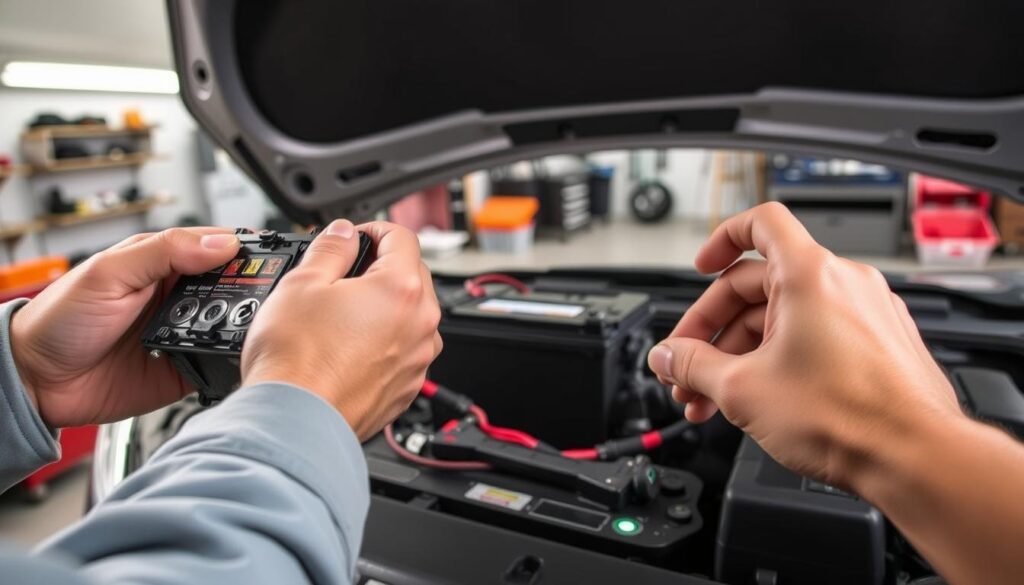
GMC Terrain Battery Types Explained
Choosing the right battery for your GMC Terrain is key. You can pick from lead-acid batteries or AGM batteries. Each has benefits that fit different driving needs and preferences.
Think about what your vehicle needs and how you drive. The perfect battery boosts your car’s performance, especially in tough weather.
Lead-Acid vs. AGM Batteries
Lead-acid batteries are the go-to for many vehicles, including the GMC Terrain. They are affordable and reliable but need regular check-ups.
These batteries work well in average conditions. They can last 3 to 5 years, based on how well you maintain them and how often you use your car.
AGM batteries, which stand for Absorbent Glass Mat, offer better performance. They don’t need upkeep and handle extreme temperatures well.
For those who make short trips or use a lot of power for gadgets, AGM batteries are a good choice. They’re great for tough driving needs.
Choosing The Right Battery Type For Your Terrain
What battery to choose for your GMC Terrain depends on your driving habits. If you often take short drives or need a lot of power, consider AGM batteries. They’re tough and work well in all kinds of weather.
If saving money matters more to you and you drive under normal conditions, lead-acid batteries should do the job.
Just make sure the battery fits your car model’s specifications. This ensures your GMC Terrain runs smoothly and reliably on the road.
| Battery Type | Advantages | Disadvantages |
|---|---|---|
| Lead-Acid Batteries | Cost-effective, reliable | Requires maintenance, less durable in extreme conditions |
| AGM Batteries | Higher performance, maintenance-free, better handling of extreme conditions | More expensive, may not be necessary for all drivers |
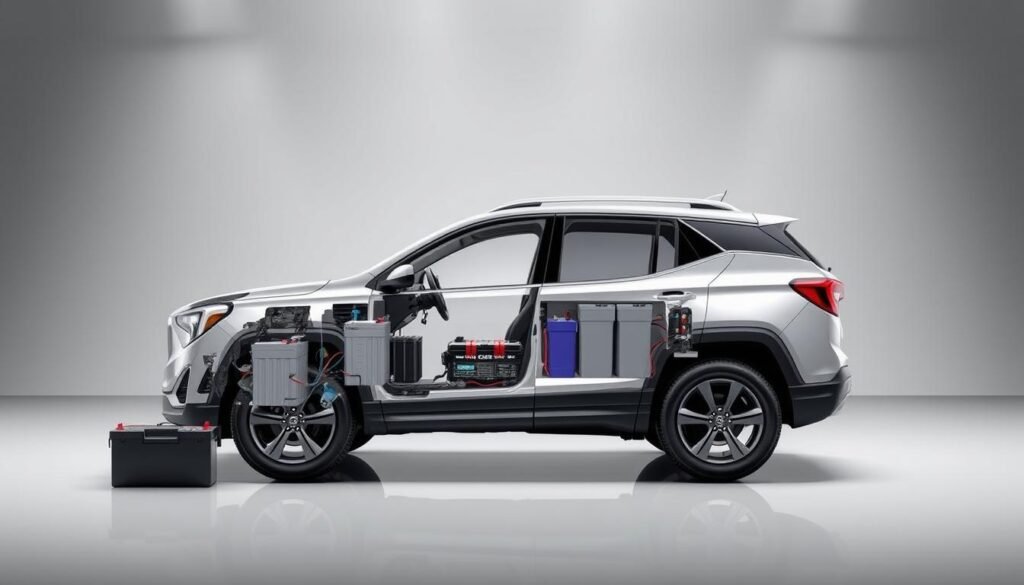
Determining The Right GMC Terrain Battery Size
Choosing the right battery size for your GMC Terrain is crucial. The correct gmc terrain battery size differs by model. This info is in your Owner’s Manual.
It ensures your vehicle works perfectly. Using the wrong size can cause problems or even fail your car’s electrical system.
Compatible Battery Sizes For Different Models
| Model Year | Compatible Battery Sizes |
|---|---|
| 2010-2017 | Group 48, Group 94R |
| 2018-Present | Group 59, Group 48 |
Signs You Need a Different Battery Size
- Frequent jump-starts or starting issues.
- Upgrading electric accessories like aftermarket stereo systems.
- Battery overheating or swelling.
- Inconsistent performance or increased battery discharges.
Watching for these signs is key to avoiding car troubles. If you notice any, get an expert’s advice on the right gmc terrain battery size. This will keep your GMC Terrain running smoothly.
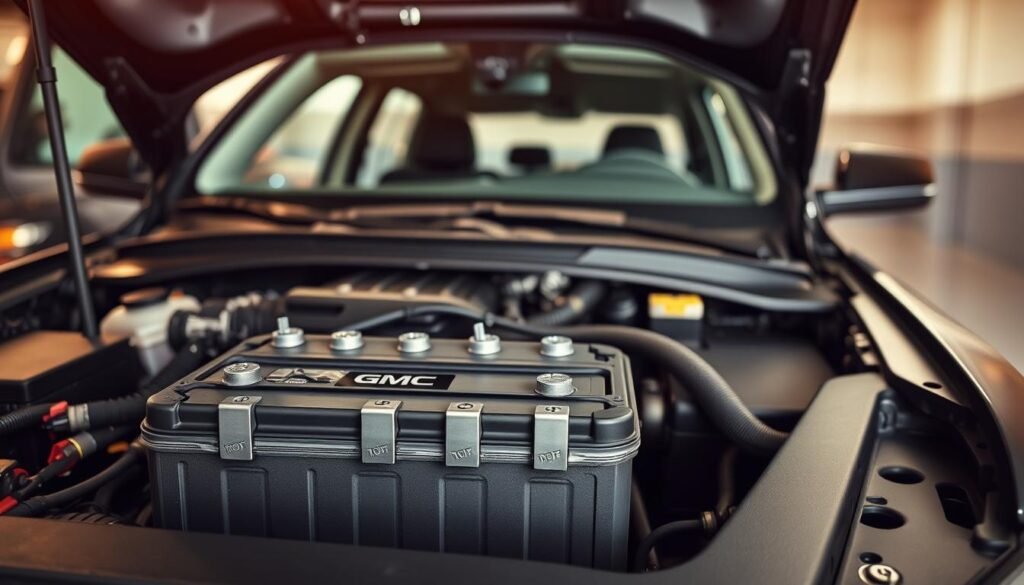
GMC Terrain Battery Cost Overview
Knowing how much a new GMC Terrain battery costs is key for vehicle owners who watch their spending. Prices for a replacement battery can range from $100 to $250.
This depends on the battery’s type, brand, and where you get it installed. Here’s what impacts battery prices.
Average Cost of a New GMC Terrain Battery
The average price for replacing a GMC Terrain battery is about $306. This includes roughly $166 for the parts and $140 for the labor.
Prices can vary if you buy from a dealership or choose aftermarket options. OEM (Original Equipment Manufacturer) batteries usually offer better warranties and are more reliable.
Factors Influencing Battery Prices
When buying a battery, several factors will affect the price:
- Brand: High-quality brands are more reliable but might cost more.
- Battery Type: Lithium Iron Phosphate batteries offer longer life and are more efficient but have a higher initial cost.
- Labor Costs: Installation prices can vary. For instance, at Bill Estes Chevy Buick GMC Lebanon, labor costs range from $20 to $40.
- Location: Expect to pay more for services in cities than in rural areas.
- Warranty: Longer warranties mean a higher price upfront but could save you money over time.
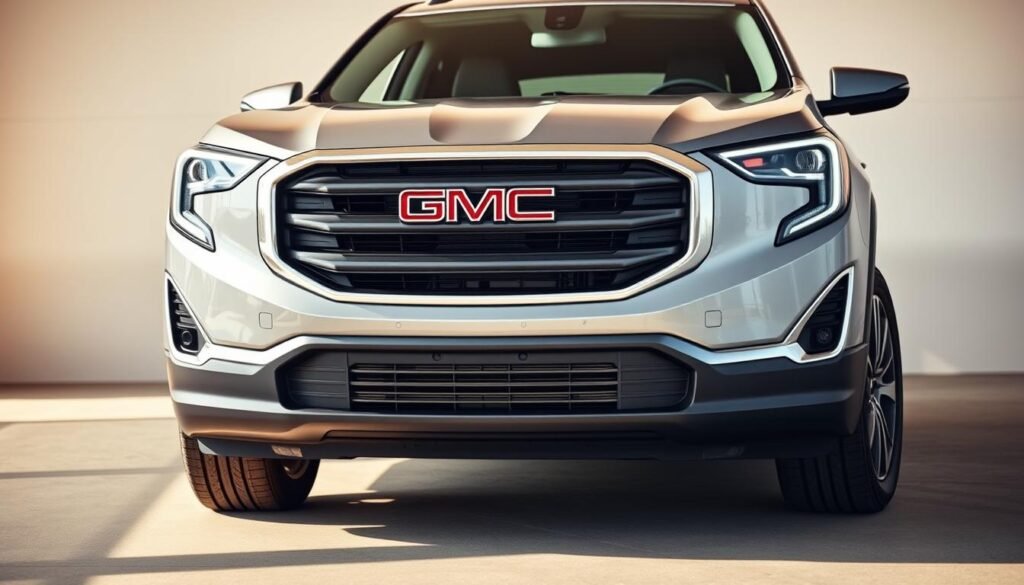
| Cost Breakdown | Parts | Labor |
|---|---|---|
| Average Replacement Cost | $166 | $140 |
| Typical Price Range | $100 – $250 | $20 – $40 |
| Warranty Period | 12 months / 12,000 miles | N/A |
Consider these points when looking into the cost of a GMC Terrain battery. This will help you choose an option that fits your budget and needs.
Best Battery For GMC Terrain
Choosing the best battery for your GMC Terrain means looking at reliable brands. ACDelco, Optima, and DieHard are top picks for most drivers. They each offer unique features that benefit your Terrain.
Top Recommended Brands
- ACDelco: Known for quality and designed to meet OEM specifications, ensuring a seamless fit.
- Optima: Offers superior performance with its SpiralCell design, providing enhanced durability and faster starts.
- DieHard: Renowned for reliability, DieHard batteries come with a long warranty, reflecting confidence in their durability.
Key Features To Look For
When looking for a battery for your GMC Terrain, consider key features. These features are crucial:
| Feature | Description |
|---|---|
| Cold Cranking Amps (CCA) | Indicates how well a battery can start an engine in cold temperatures; higher values are better for winter conditions. |
| Reserve Capacity (RC) | Measures how long the battery can supply power without the engine running, crucial for powering electronics. |
| Maintenance-Free | Most modern batteries are maintenance-free, eliminating the need for regular checks of electrolyte levels. |
GMC Terrain Battery Warranty Information
Compromise your GMC Terrain’s battery warranty is key to protecting your investment. GMC provides a limited warranty that covers your car, including its battery. This coverage lasts for three years or 36,000 miles, whichever comes first.
It includes defects in workmanship and materials, offering peace of mind. This knowledge is vital for effectively managing battery warranty claims.
Learning Warranty Coverage
The warranty for GMC Terrain batteries is part of the vehicle’s overall warranty. It specifically covers the battery.
Here’s a quick overview of what the GMC battery warranty includes:
| Battery Type | Warranty Period | Important Details |
|---|---|---|
| Original Equipment Battery | 3 years / 36,000 miles | Covers defects in materials and workmanship |
| ACDelco Replacement Battery | Varies by type (12 to 48 months) | Non-transferable; includes warranty insert for claiming |
| AGM Batteries | 24 to 48 months | Up to 36 months depending on series |
How To Claim Your Battery Warranty?
To claim your GMC Terrain battery warranty, make sure you’re prepared. You’ll need:
- Your dated bill of sale.
- The original battery, with its warranty tag attached.
Head to your GMC dealer to start the warranty claim. They’ll explain what you need to do next. Remember, the warranty doesn’t cover damage from accidents or misuse.
Knowing this helps ensure a smooth warranty claim process for your GMC Terrain battery.
Tips For GMC Terrain Battery Care
Taking good care of your GMC Terrain battery is key to its longevity and peak working order. These battery upkeep tips will help you avoid surprises and enjoy problem-free rides.
Regular checks, cleaning, and being proactive about maintenance are crucial.
Maintenance Tips For Extending Battery Life
- Inspect your battery regularly for cracks, leaks, and signs of corrosion.
- Keep terminals clean by using a wire brush and appropriate battery cleaner spray.
- Apply petroleum jelly on the terminals after cleaning to prevent future corrosion.
- Charge your battery adequately during extreme temperatures to maintain performance.
- Remove the negative cable when the vehicle is not in use for an extended time to avoid battery drain.
- Consider using a trickle charger during prolonged storage to maintain battery health.
How To Handle Battery Corrosion?
When you spot corrosion on your battery terminals, it’s crucial to take care of it quickly. Begin by detaching the battery, starting with the negative terminal. Mix baking soda with water to neutralize and clean off the corrosion.
After rinsing and drying the area well, reconnect the battery. These steps will effectively manage battery corrosion and help maintain its life.
Addressing Common GMC Terrain Battery Issues
Knowing how to identify and fix GMC Terrain battery problems is key. A good battery means your car runs well.
But if your battery is bad, it can cause big issues if you ignore it. Let’s talk about what to look for and what to do if you think your battery might be bad.
Signs of a Failing Battery
Recognizing a bad battery early can keep you from getting stuck. Look out for these signs:
- Slow engine cranking when starting the vehicle
- Dimming headlights and interior lights
- Electrical issues, like trouble with power windows or the entertainment system
- Needing to jump-start the car often
- A battery warning light on your dashboard
If you see any of these signs, it’s time to check your battery.
Common Problems and Troubleshooting
Start fixing the problem with these steps:
- Conduct a visual inspection. Look for rust on terminals and make sure connections are tight.
- Do a parasitic draw test to see if the battery is losing power. It should use around 50 milliamps when off.
- Check the voltage with a multimeter. A good battery will show more than 12.4 volts.
- If problems keep happening, get a pro to check it out. Shops like Autozone or Advance can test your charging system.
Sometimes, a test might show a battery has no reserve energy, which can be confusing. Remember, a GMC battery usually lasts 3 to 5 years. Testing it often is important to keep it in good shape.
If you ignore signs of a battery problem, you could end up stuck. Keep your battery in top condition to avoid surprises.
Conclusion
Getting good at changing the GMC Terrain’s battery boosts your car’s dependability and how well it runs.
Checking your battery often and knowing the types you can get helps you take better care of it. This makes sure it lasts longer.
Knowing how to replace it means you’re ready to do it well when needed. A bad battery might stop your car from starting and mess up its electrical stuff. So, fixing it fast is key.
You’ll need a few things like a new battery, gloves, a wrench, and stuff to clean the battery contacts. It’s simple to get these tools. It’s also vital to throw out the old battery the right way.
Many shops that sell auto parts will recycle it for free, which helps the planet. Using the advice in this article makes changing your GMC Terrain’s battery easier.
It leads to a healthier battery and a car that runs better. By being proactive about battery care, you keep your car working well. Plus, it gives you the comfort of knowing you’ve taken great care of your battery.
FAQs
What is the average lifespan of a GMC Terrain battery?
The average life of a GMC Terrain battery is 3 to 5 years. This can vary based on the weather, how you drive, and how well you maintain the battery.
How much does a GMC Terrain battery replacement cost?
A new battery for a GMC Terrain costs between 0 and 0. The price changes based on the brand, battery type, and fees for service.
What size battery do I need for my GMC Terrain?
You can find the right battery size for your GMC Terrain in the Owner’s Manual. Choosing the correct size is very important for the car’s performance.
What type of battery is used in a GMC Terrain?
GMC Terrains mainly use lead-acid batteries. However, AGM batteries are also an option for better performance in some cases.
How do I replace the battery in my GMC Terrain?
To change your battery, turn off your vehicle first. Then remove the negative terminal, followed by the positive. Clean both terminals. Place the new battery securely.
What are the best batteries for GMC Terrain?
The best battery brands for a GMC Terrain include ACDelco, Optima, and DieHard. Look for features like Cold Cranking Amps and Reserve Capacity.
What should I do if my GMC Terrain battery is failing?
If your battery is failing, you’ll notice slow engine starts and electrical problems. Check it visually and get professional advice if it keeps happening.
How can I extend the life of my GMC Terrain battery?
You can make your battery last longer by regularly checking it, cleaning any corrosion, and keeping it charged. This is especially important when it’s very hot or cold.
What warranty is typically offered with GMC Terrain batteries?
Warranties for batteries often last 1 to 3 years. They usually cover material and workmanship issues.

